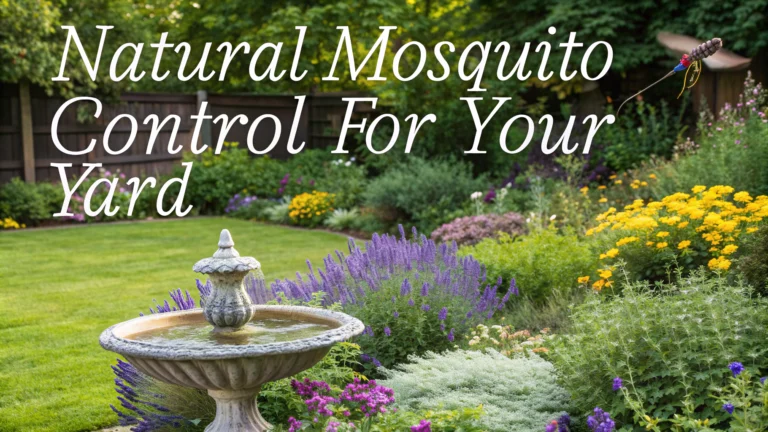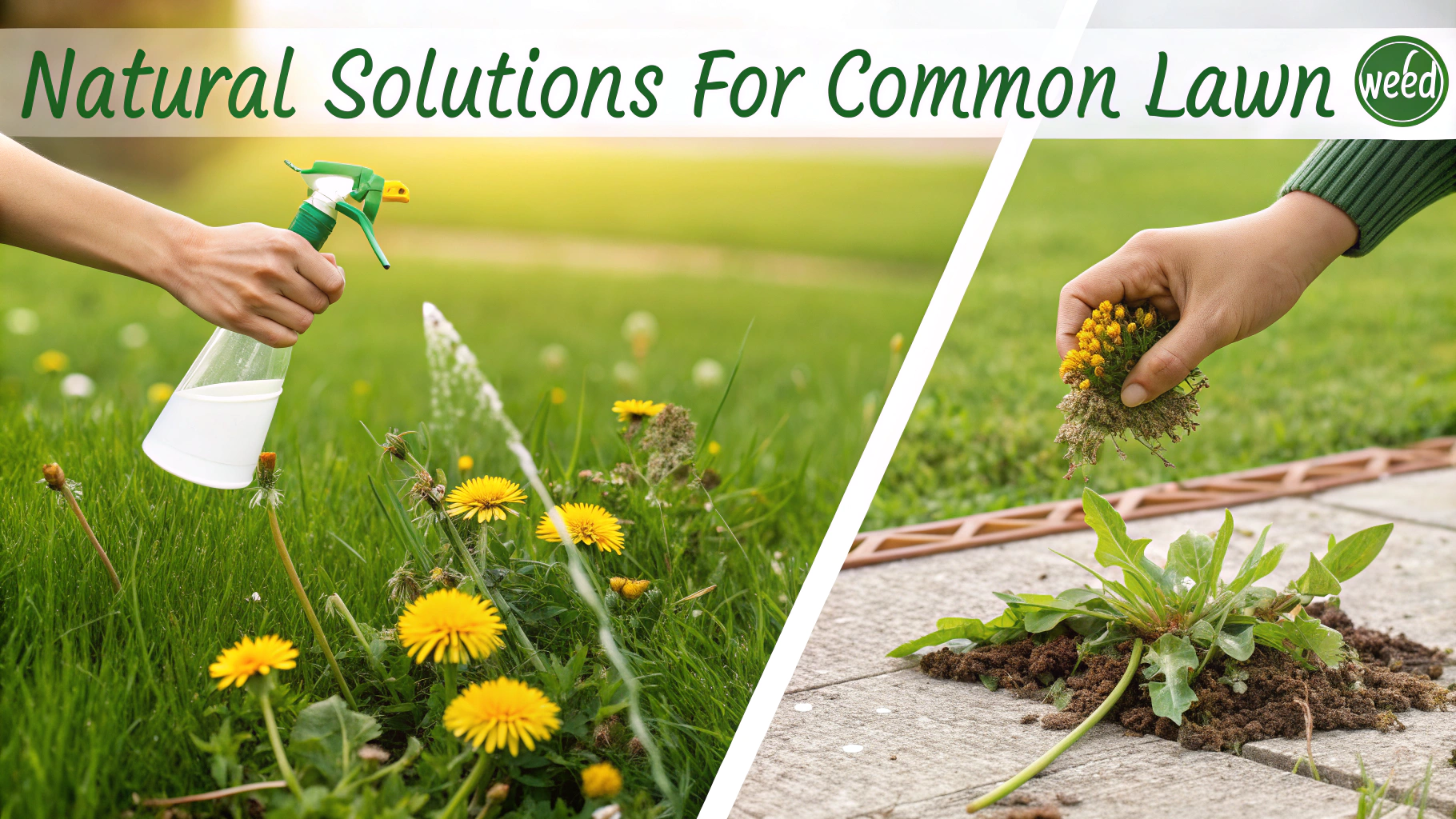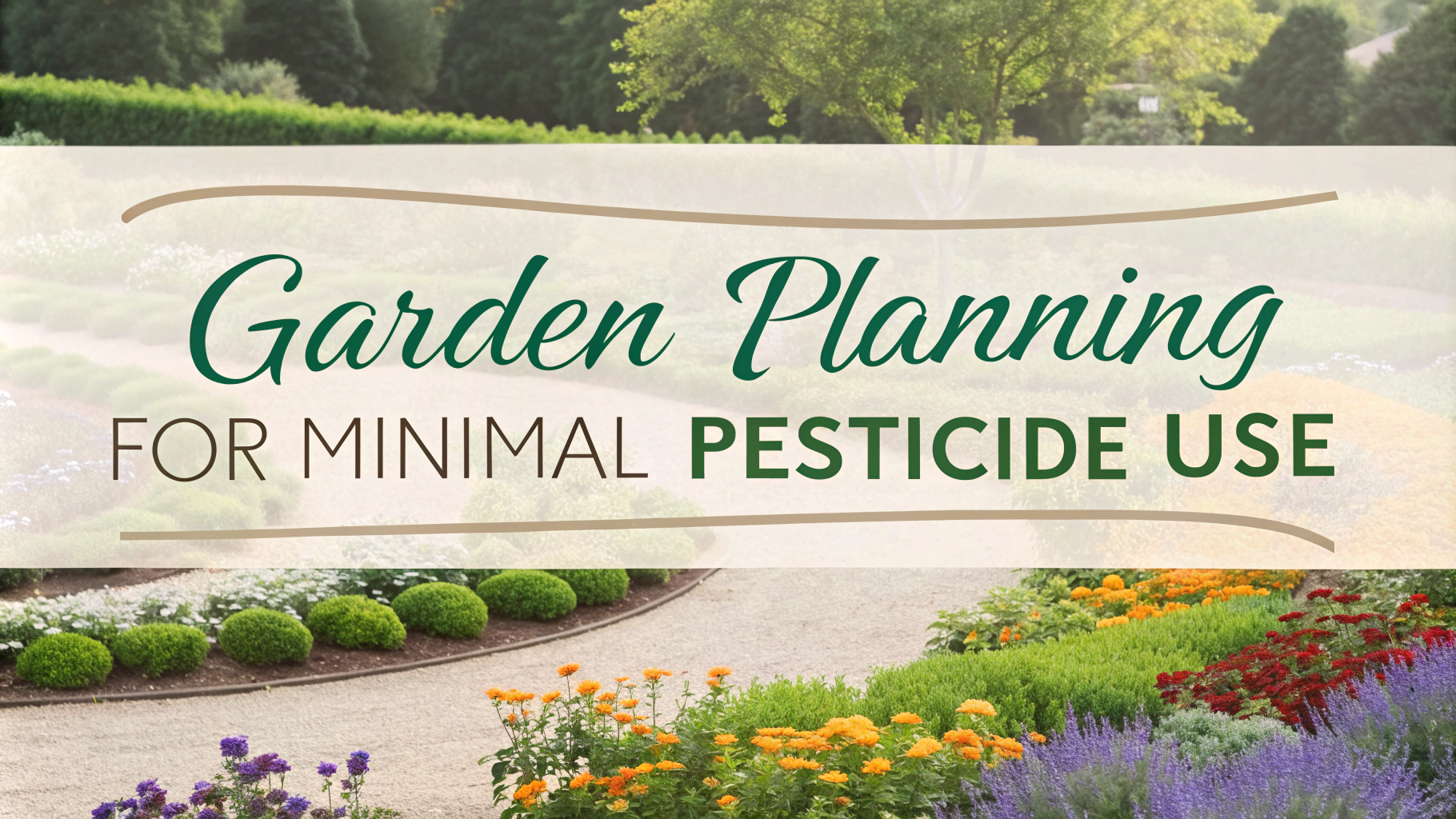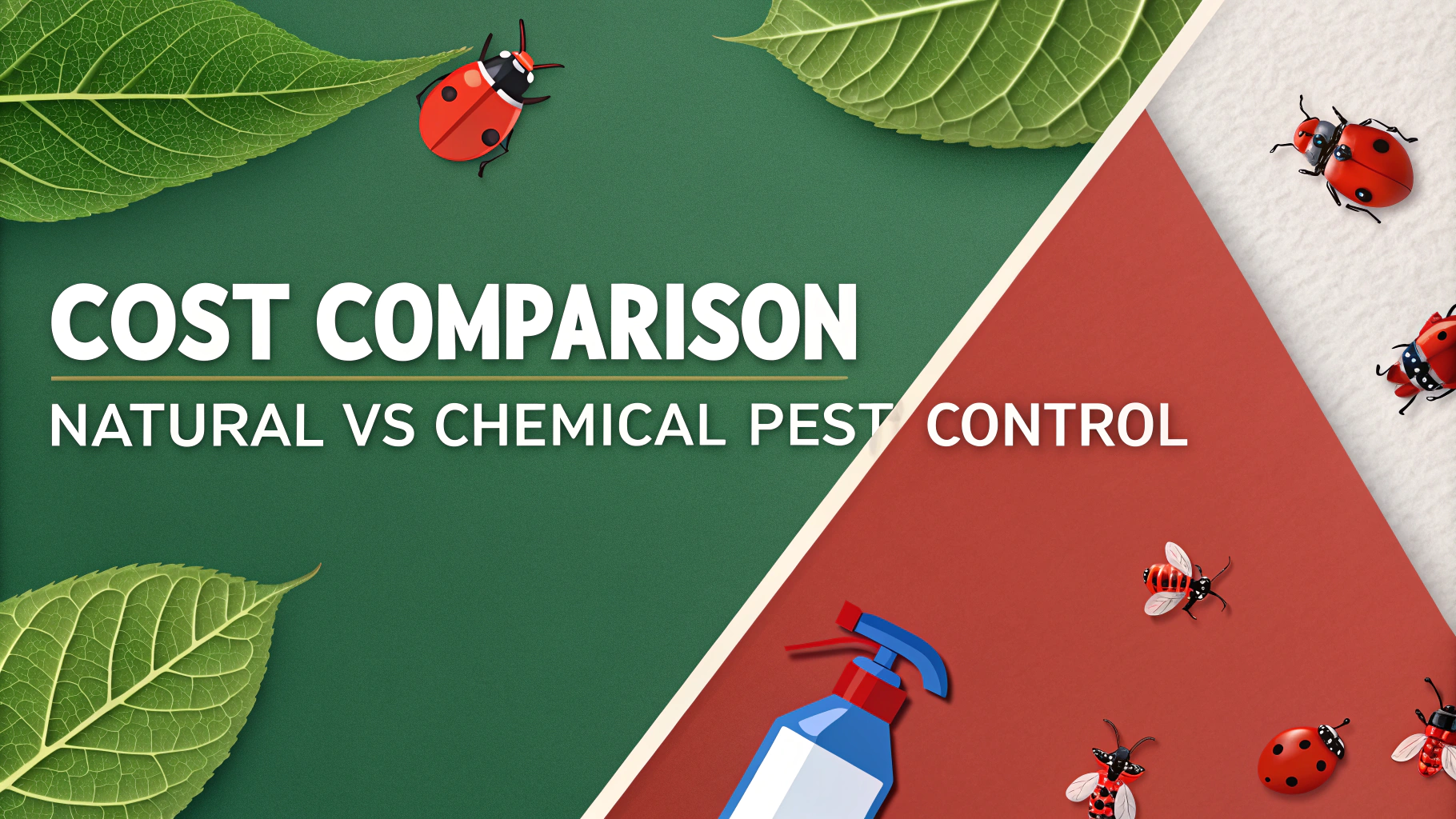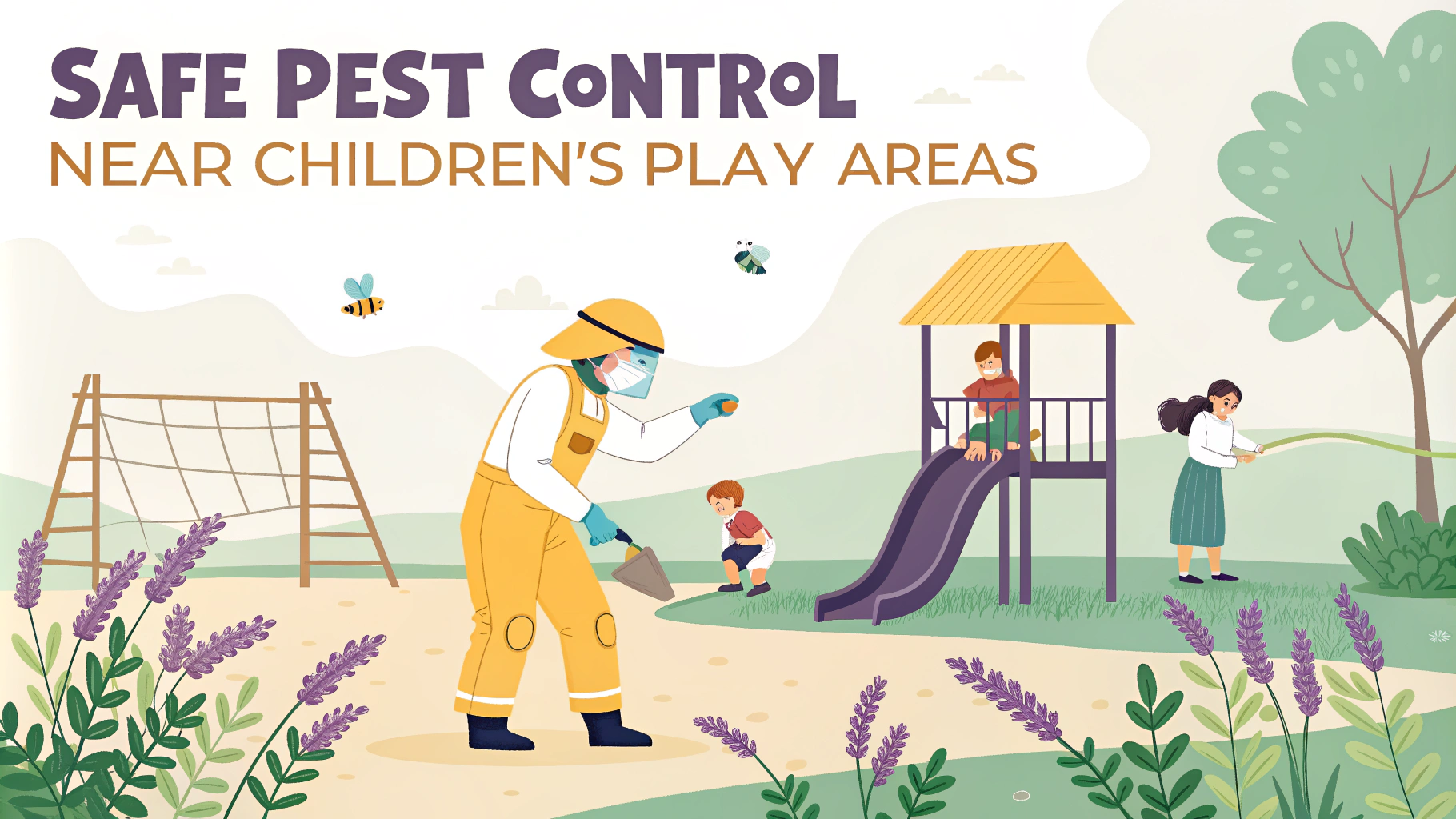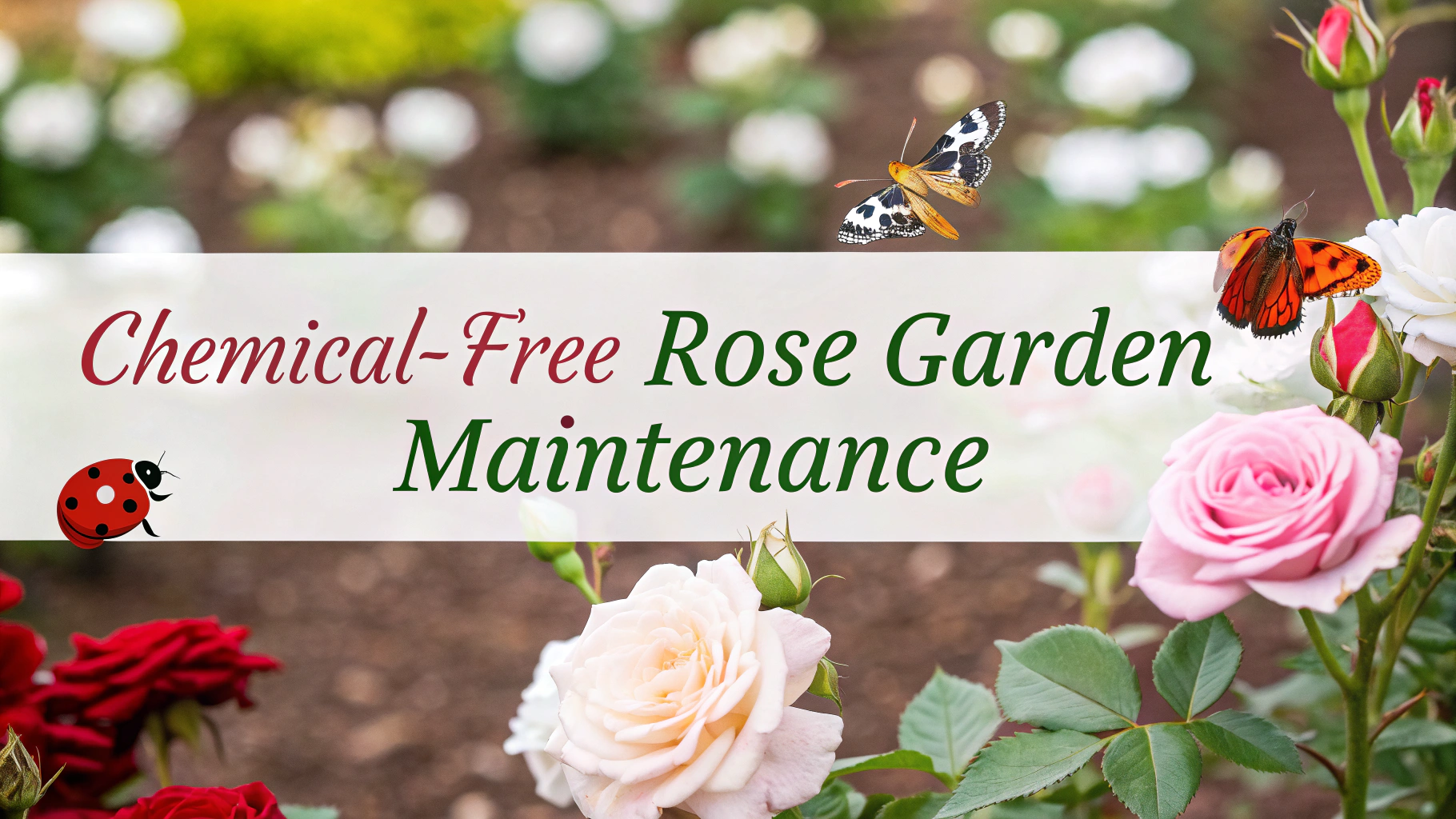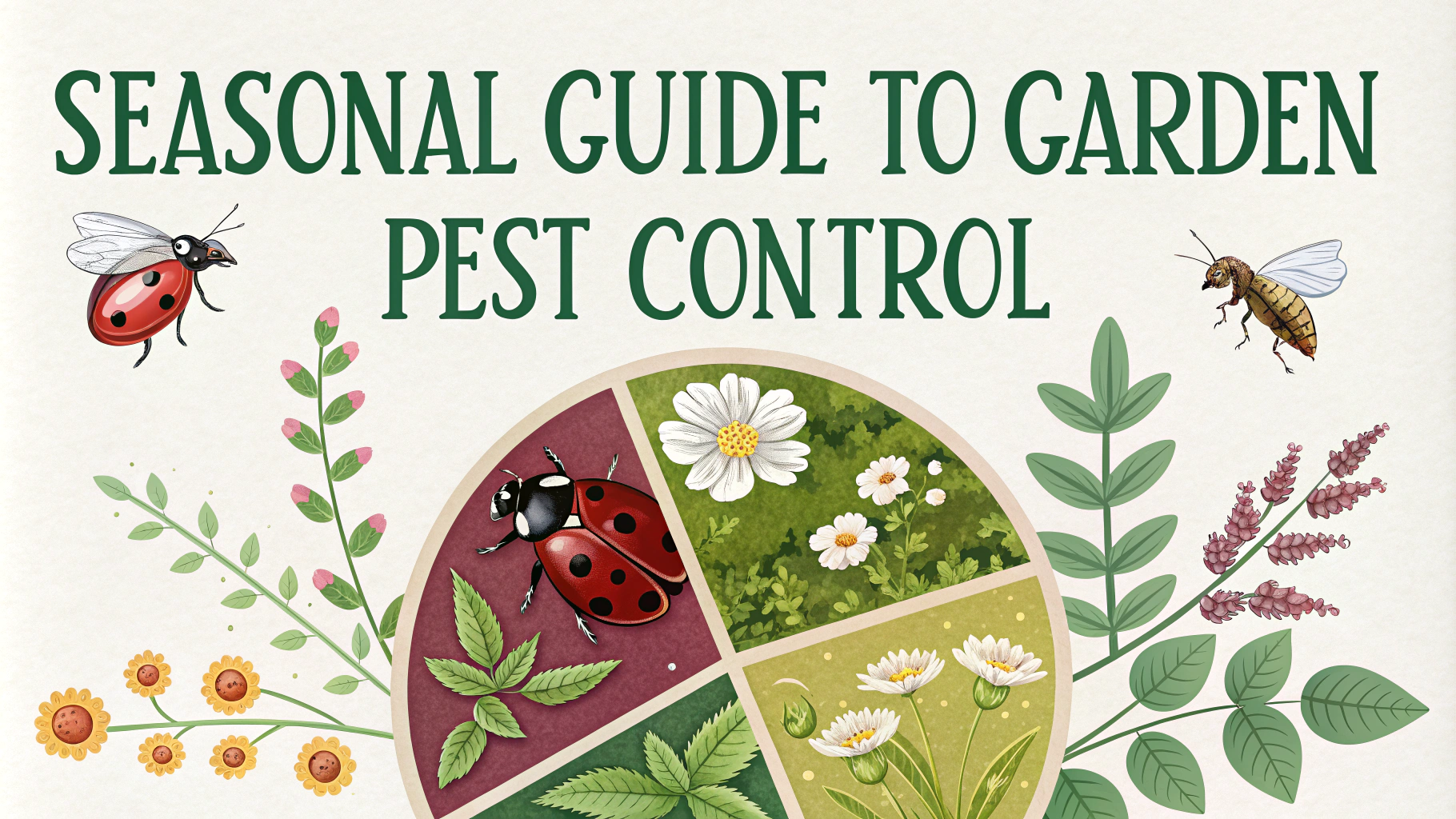Controlling mosquitoes naturally in your yard creates a more enjoyable outdoor space without harmful chemicals.
Natural Mosquito-Repelling Plants:
- Citronella grass
- Lavender
- Marigolds
- Rosemary
- Lemongrass
- Mint
Standing water elimination stands as the most effective natural mosquito control method.
| Common Water Sources | Solution |
|---|---|
| Bird baths | Change water weekly |
| Gutters | Clean regularly |
| Plant containers | Empty standing water |
Natural Predator Attraction Methods:
- Install bat houses (one bat eats 1000+ mosquitoes nightly)
- Welcome dragonflies by adding a pond with moving water
- Attract purple martins with specialized birdhouses
DIY Natural Repellent Spray Recipe:
- 2 cups witch hazel
- 1/2 cup apple cider vinegar
- 50 drops essential oils (eucalyptus, citronella, lavender mix)
Proper lawn maintenance reduces mosquito breeding grounds.
Yard Maintenance Tips:
- Keep grass below 3 inches
- Remove leaf litter
- Trim bushes and tree branches
- Fill in low spots where water collects
Natural Barrier Methods:
- Cedar mulch around seating areas
- Outdoor fans for patio spaces
- Natural citronella torches
For professional natural mosquito control services, contact the National Pest Management Association at 800-678-6722 or visit npmapestworld.org.
Professional treatments using natural methods should occur every 3-4 weeks during mosquito season.
Advanced Natural Control Methods
Natural mosquito control extends beyond basic yard maintenance and plants to include comprehensive ecosystem management.
Biological Control Options:
- Beneficial nematodes in soil
- Mosquito-eating fish in permanent water features
- BTI dunks for unavoidable standing water
Protective Barriers:
- Fine-mesh screens on windows and doors
- Mosquito netting for outdoor dining areas
- Natural fabric treatments with permethrin
Time-Based Prevention:
- Schedule outdoor activities outside peak hours (dawn/dusk)
- Plan yard maintenance after morning dew dries
- Apply natural repellents before sunset
Conclusion
Effective natural mosquito control requires a multi-layered approach combining:
- Environmental management
- Natural repellents
- Biological controls
- Protective barriers
- Strategic timing
Regular maintenance and consistent application of these natural methods can significantly reduce mosquito populations without relying on synthetic chemicals.
Remember to adjust control methods based on seasonal changes and local mosquito species.
FAQs
- What are the most effective natural plants that repel mosquitoes?
Citronella grass, lavender, marigolds, rosemary, and lemongrass are proven natural mosquito repellents. These plants contain essential oils and compounds that mosquitoes actively avoid. - How does standing water affect mosquito populations in my yard?
Standing water serves as a breeding ground for mosquitoes, who need as little as 1/2 inch of water to lay eggs. Eliminating standing water in containers, gutters, and low spots can reduce mosquito populations by up to 90%. - Can installing bird houses really help control mosquitoes?
Yes, birds like purple martins, swallows, and warblers are natural predators of mosquitoes. Installing birdhouses can attract these species, which can consume hundreds of mosquitoes daily. - What role do bat houses play in mosquito control?
A single bat can eat up to 1,000 mosquitoes in one hour. Installing bat houses provides shelter for these beneficial creatures and creates natural mosquito control, especially during dawn and dusk. - How effective are mosquito-repelling outdoor fans?
Outdoor fans are highly effective as mosquitoes are weak flyers. Strategic placement of fans can reduce mosquito activity by up to 65% in outdoor spaces by disrupting their flight patterns. - What natural larvicides can I use in water features?
BTI (Bacillus thuringiensis israelensis) is a natural bacteria that kills mosquito larvae but is safe for other wildlife, pets, and humans. It can be used in ponds, fountains, and other water features. - Does maintaining my lawn help reduce mosquito populations?
Regular lawn maintenance, including keeping grass short and eliminating weeds, reduces mosquito resting areas. Proper drainage and trimming overgrown vegetation can decrease mosquito habitat by up to 50%. - What time of day should I focus my mosquito control efforts?
Focus control efforts during dawn and dusk, when mosquitoes are most active. These times represent peak mosquito feeding periods, making control methods most effective then. - How can I use natural predators like dragonflies for mosquito control?
Creating a dragonfly-friendly environment with shallow water features and suitable plants can attract these insects, which eat both mosquito larvae and adults. A single dragonfly can consume hundreds of mosquitoes daily. - What natural spray alternatives exist for mosquito control?
Essential oil mixtures containing citronella, eucalyptus, lavender, or neem oil are effective natural sprays. These can be applied to yard perimeters and provide short-term mosquito control without harmful chemicals.
